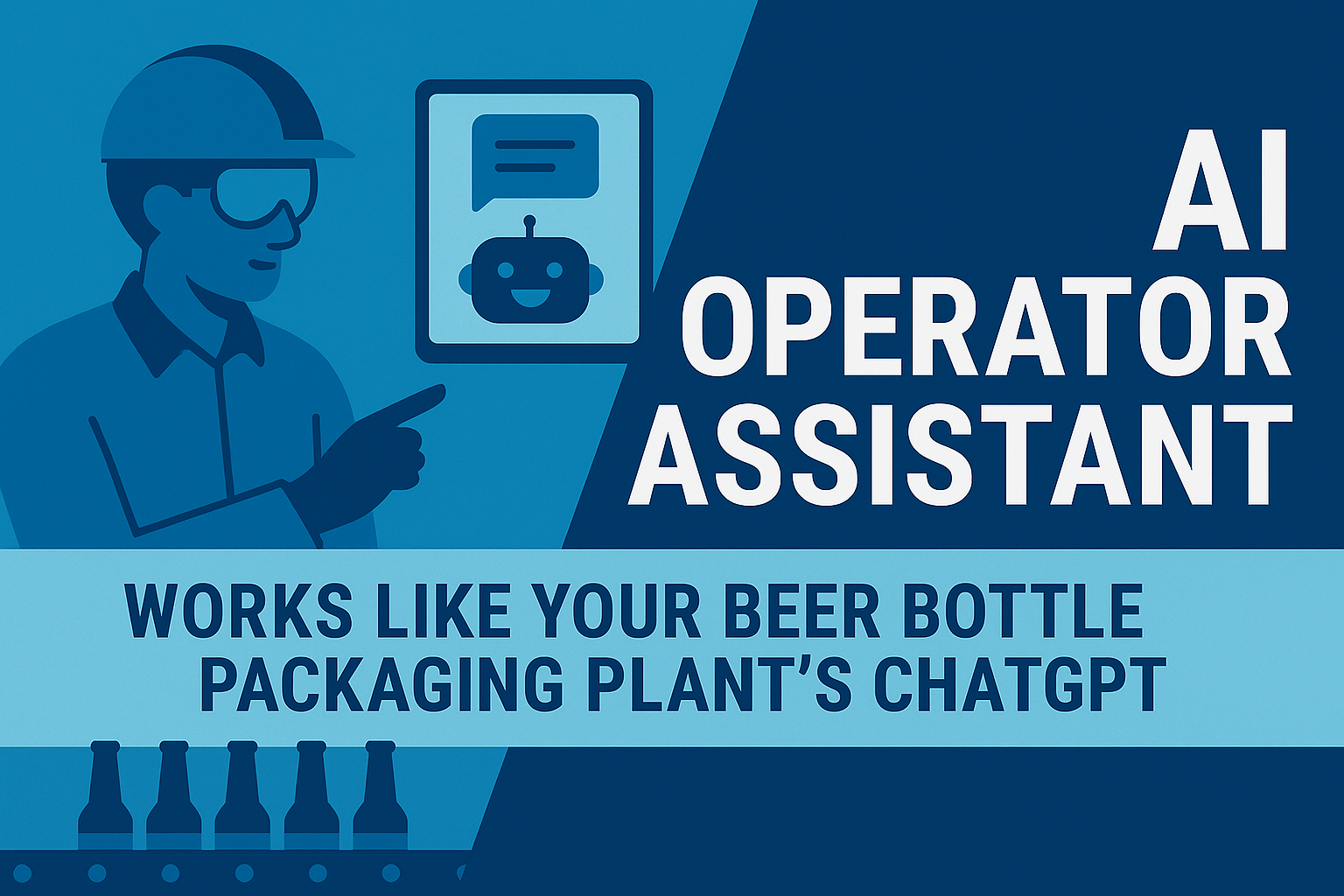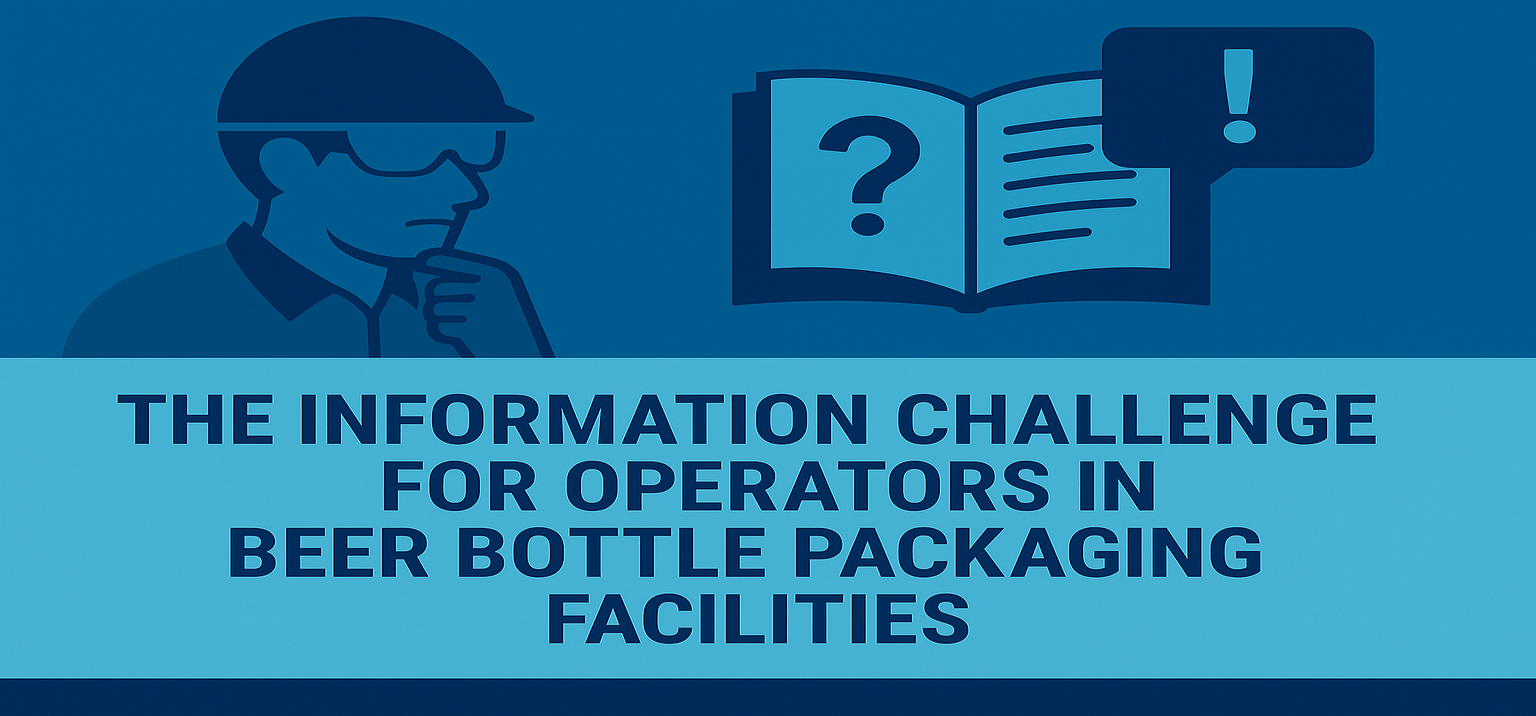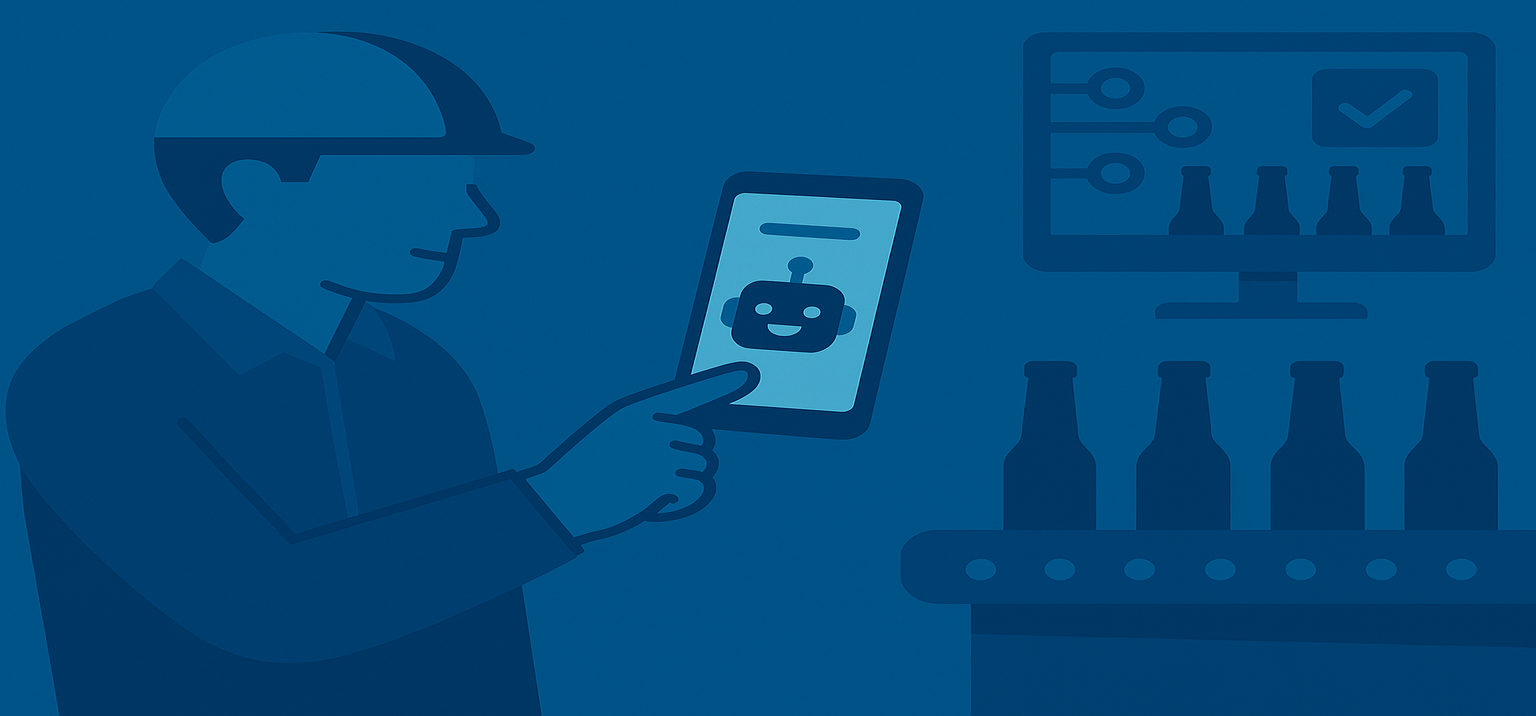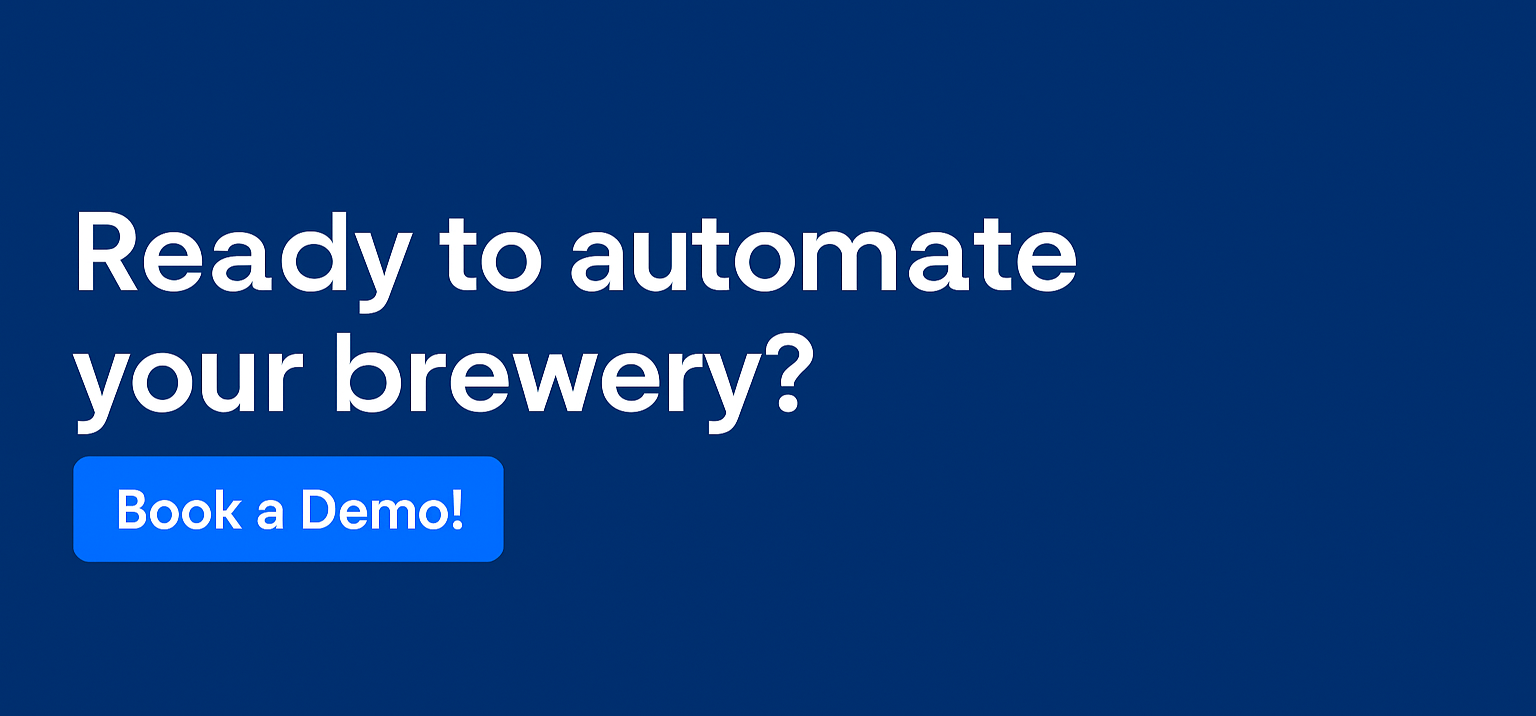Blog Post
AI Operator Assistant: Works Like Your Beer Bottle Packaging Plant ChatGPT

Working as an operator in a beer bottle packaging facility is both demanding and intricate. Operators are tasked with managing complex machinery, adhering to stringent safety protocols, and ensuring seamless production flows. Amidst these responsibilities, recalling various operational procedures and equipment manuals can be overwhelming. Accessing this critical information promptly is often challenging, leading to potential delays and errors.
Modern AI technology offers a promising solution to these challenges. By simplifying information retrieval and providing real-time assistance, AI can significantly enhance the efficiency and accuracy of operators on the packaging floor. This blog post delves into the common hurdles faced by operators in accessing essential information and explores contemporary solutions, including AI-powered tools, that can be adopted to improve operational workflows.
The Information Challenge for Operators in Beer Bottle Packaging Facilities

Operators in beer bottle packaging plants often grapple with the daunting task of accessing the right information at the right time. The complexity of machinery and the variety of procedures necessitate a vast repository of knowledge. However, traditional methods of information storage and retrieval, such as bulky manuals or scattered digital files, can be inefficient.
This inefficiency not only consumes valuable time but also incurs significant costs. Delays in accessing information can lead to prolonged downtimes, reduced productivity, and increased operational expenses. Moreover, the inability to promptly retrieve accurate information can result in errors during the packaging process, compromising product quality and safety.
Common errors stemming from information access challenges include incorrect machine settings, improper handling of packaging materials, and non-compliance with safety protocols. These mistakes can lead to product recalls, regulatory penalties, and damage to the company's reputation.
What Are Breweries Doing to Support Their Operators with the Right Information at the Right Time?

To address these challenges, breweries have implemented various methods and technologies aimed at facilitating better information access for operators. These include:
- Printed Manuals and SOPs: Traditional paper-based documents detailing standard operating procedures.
- Digital Document Repositories: Centralized digital platforms where manuals and procedures are stored.
- On-the-Job Training Programs: Structured training sessions to educate operators on machinery and procedures.
- Visual Aids and Signage: Posters and labels placed near machinery to provide quick reference.
- Mentorship Systems: Pairing less experienced operators with seasoned mentors for guidance.
Comparison of Traditional Methods:
| Method | Accessibility | Real-Time Updates | User Engagement | Cost Efficiency |
|---|---|---|---|---|
| Printed Manuals | Low | No | Low | Moderate |
| Digital Repositories | Moderate | Yes | Moderate | High |
| On-the-Job Training | High | N/A | High | Variable |
| Visual Aids and Signage | High | No | Moderate | High |
| Mentorship Systems | High | N/A | High | Variable |
While these methods offer varying degrees of effectiveness, they also present common challenges:
- Information Overload: Operators may be overwhelmed by the volume of information.
- Outdated Materials: Printed materials may not reflect the latest procedures or safety standards.
- Inconsistent Training: Variability in training quality can lead to knowledge gaps.
- Limited Accessibility: Physical documents and signage are not always accessible when needed.
The Age of AI: How AI Is Changing How Operators Access Information on Beer Bottle Packaging Floors

The integration of Artificial Intelligence (AI) into packaging operations is revolutionizing how operators access and utilize information. AI-powered tools, particularly those leveraging Large Language Models (LLMs), offer interactive and intuitive platforms for information retrieval.
FirstStep AI's Operator Assistant stands out as a comprehensive and affordable AI solution designed specifically for operators in beer bottle packaging facilities. By converting existing procedural documents into an interactive platform, it empowers operators to access critical information effortlessly.
Key Advantages:
- User-Friendly Interface: Designed for ease of use, requiring minimal training.
- Real-Time Updates: Ensures operators have access to the most current procedures and guidelines.
- Mobile Accessibility: Enables operators to retrieve information on-the-go, directly from the packaging floor.
- Enhanced Accuracy: Reduces the likelihood of errors by providing precise, context-specific information.
Future Prospects: What’s Next for AI in Beer Bottle Packaging Operations?
As AI continues to mature, the future of operator assistance on beer bottle packaging floors is moving beyond just smart Q&A tools. Innovations on the horizon aim to transform how operators interact with information and machinery, not only making tasks easier but also making facilities smarter and more adaptive.
- Voice-Activated Interfaces for Hands-Free Operation
Operators often have their hands full—literally. Voice-activated AI assistants will allow operators to query SOPs, troubleshoot errors, or even initiate specific machine routines without ever touching a screen. This voice interface will be especially valuable in noisy industrial settings if combined with advanced noise-canceling and speech recognition technologies tailored for factory environments. - Predictive Guidance Based on Operational Context
Future AI systems won’t just wait for a question—they'll proactively offer suggestions. For example, if an operator begins setting up a specific line, the AI might prompt reminders about unique calibration steps or safety checks based on previous data. This “just-in-time” guidance, driven by historical patterns, minimizes human oversight. - AR and Visual Overlays for Step-by-Step Instructions
Imagine an operator wearing AR glasses or using a tablet to point at machinery, instantly triggering visual overlays that walk them through maintenance procedures or setup sequences. With the convergence of AI and augmented reality, contextual instructions will become visual, reducing cognitive load and helping even novice operators complete complex tasks. - Real-Time Feedback Loops with Machine Learning
Future AI tools will continuously learn from how operators interact with them. If a particular question is asked frequently, or if certain procedures often result in errors, the AI will adjust its prompts, flag knowledge gaps, or even notify supervisors about trends that require attention. This creates a live feedback loop that evolves with the workforce. - Seamless Integration with Plant-Wide Systems
Eventually, AI assistants like FirstStep AI will plug into larger enterprise systems—connecting with MES (Manufacturing Execution Systems), quality control databases, and IoT sensors. This will allow operators to query not just "how do I fix this?" but "why did this happen?"—providing a fuller picture and bridging the gap between data and decision-making.
These developments underscore a critical shift: AI won’t just help operators do their job—it will transform how the job itself is structured, empowering human workers to make smarter decisions, faster.




